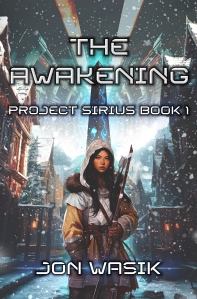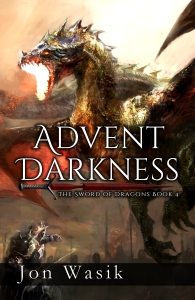Hello, there!
First and foremost, I will not be posting spoilers for the on-going Disney+ series Ahsoka, just some minor, out-of-context references. I will, however, be discussing the character Ahsoka throughout the previous shows, so if you’ve not watched The Clone Wars or Rebels yet, consider this your spoiler alert!
With that out of the way…
 In August 2008, something new hit movie theaters – the CGI animated Star Wars: The Clone Wars movie, promising to kick off a new era of Star Wars TV shows and acting as a premier for the series that would start 2 months later.
In August 2008, something new hit movie theaters – the CGI animated Star Wars: The Clone Wars movie, promising to kick off a new era of Star Wars TV shows and acting as a premier for the series that would start 2 months later.
Many people have…feelings about the movie. Most of them are not positive feelings. Ragers and haters have both united and divided over what was good and what wasn’t in this show.
But at the time, there was one thing that almost all of the ragers and haters could agree on – they hated Ahsoka Tano. To quote Wikipedia’s account: “Ashley Eckstein, who primarily voiced Ahsoka, said she and the writers were aware that audiences initially found the character annoying, and that there was a “fine line” between Ahsoka being bratty and becoming endearing.”
 On a personal note, I was among those who didn’t like her back then. I thought her character would be nothing more than a non-cannon distraction, an attempt to appeal to kids when there was no need, and I thought her character would end up ruining the show. Plus, what’s up with what’s essentially a teenage girl wearing next to nothing in the middle of a battlefield?
On a personal note, I was among those who didn’t like her back then. I thought her character would be nothing more than a non-cannon distraction, an attempt to appeal to kids when there was no need, and I thought her character would end up ruining the show. Plus, what’s up with what’s essentially a teenage girl wearing next to nothing in the middle of a battlefield?
I legit thought she would ruin the Clone Wars series, which already had a dismal beginning.
I was wrong.
And I am so very glad to have been proven wrong!
Now, like so many other Star Wars fans out there, Ahsoka went from being one of the most disliked characters in the Clone Wars, to being one of their favorites in all of Star Wars. At least, that’s how I feel about her – more than Anakin or Luke or even Leia, Ahsoka Tano is my favorite!
But…how? How did this happen? How did she go from being the most annoying character to the most beloved? So-much-so that she’s now been in five shows and even had a voice cameo in the last Star Wars movie, The Rise of Skywalker?
In my opinion, it’s the simplest, yet most complicated reason – she has legitimate character development.
Characters Should Never Be Stagnant
Stories are only interesting if something interesting happens in the story, right? But if something interesting happens, that ‘something’ should affect the character or characters, right? Otherwise…what’s the point?
It sounds simple enough, but sometimes writers really struggle with this concept, though I would say that it’s mostly on an unconscious level. Add to that any sort of complication to the writing, such as studios demanding changes because they think they know what audiences want, and it’s easy to backtrack on character development, or have it completely take a back seat.
But I recall some of the earliest lessons I learned in creative writing class, and it all boiled down to one question a writer should always ask themselves when writing a story – what journey is the character going to take? And just as important, how will the character be changed at the end?
 I’m convinced that one of the reasons Star Trek has done so well since TNG is that, particularly after the first season, TNG episodes were written with either one or a couple of specific characters in mind. There were ‘Worf’ episodes, ‘Troi’ episodes, ‘Data’ episodes, and so on, where the entire cast might be present, but mostly the episodes focused on developing one character. And as the targeted characters changed, that change was reflected in those around them, whether that was intentional or incidental.
I’m convinced that one of the reasons Star Trek has done so well since TNG is that, particularly after the first season, TNG episodes were written with either one or a couple of specific characters in mind. There were ‘Worf’ episodes, ‘Troi’ episodes, ‘Data’ episodes, and so on, where the entire cast might be present, but mostly the episodes focused on developing one character. And as the targeted characters changed, that change was reflected in those around them, whether that was intentional or incidental.
DS9 did it even better, by being a serialized story, or one long, continuous story rather than just one-offs.
If Ahsoka Tano had never changed throughout the Clone Wars, if by season 7 she was the exact same character she’d started the show as, I strongly suspect she would still be a disliked character.
But she changed.
 Here’s the kicker – it wasn’t sudden. It wasn’t jarring. And this is where I think Filoni and those who helped him write the Clone Wars are master storytellers – Ahsoka’s character development was subtle and slow. Sure, there were moments between seasons when her appearance drastically changed (thank goodness she actually got clothes!), and that was meant to signify a progression in the timeline, IE she’s older and the Clone Wars has been going on longer. But even in those jumps, her development was slow and subtle.
Here’s the kicker – it wasn’t sudden. It wasn’t jarring. And this is where I think Filoni and those who helped him write the Clone Wars are master storytellers – Ahsoka’s character development was subtle and slow. Sure, there were moments between seasons when her appearance drastically changed (thank goodness she actually got clothes!), and that was meant to signify a progression in the timeline, IE she’s older and the Clone Wars has been going on longer. But even in those jumps, her development was slow and subtle.
At least for me personally, I can’t point to any one episode, any one point in the Clone Wars when Ahsoka became likeable to me, let alone when she became my favorite character. When the Clone Wars first started, I watched it as it aired….until season 2. I gave up on it back then.
It was only when the entire series (at that point) came to Netflix that I gave it another chance. I’d read that the show was considered one of the best ever, and I wanted to find out why. I also remembered Star Trek shows often suffering in early seasons but getting better later (Stargate SG-1 and Stargate Atlantis likewise suffered the same problem).
So I tried again.
I still didn’t like Ahsoka in season 1.
But…
Eventually that changed.
 And when she left the Jedi Order, it yanked at my heart strings. It was one of the most heartbreaking episodes I’d ever watched. It also explained why she wasn’t in Revenge of the Sith, so my need for continuity was satisfied.
And when she left the Jedi Order, it yanked at my heart strings. It was one of the most heartbreaking episodes I’d ever watched. It also explained why she wasn’t in Revenge of the Sith, so my need for continuity was satisfied.
We got to watch her change. We got to watch her grow up, so to speak.
And then…Star Wars Rebels came along, and that season 1 finale, I damn near cheered when I saw her in it. It confirmed that Ahsoka had survived Order 66, and I was so incredibly happy to see more of her!
Around this time was when I met the person who would become my life partner, Beck, and when we started spending more time together and watching shows together, I showed her Rebels.
She had no context about Ahsoka. So we went back and watched The Clone Wars on Netflix again.
Knowing the kind of person Ahsoka would become, I suddenly found her earlier seasons not so unbearable. Because I could see it now. I could see why she had to start the way she did, and I could watch the subtle nuances as she grew up and was forced to become an adult long before her actual age of adulthood. War was unkind, but she found and forged kindness where no one thought it could be. The horrors of war made her kinder…
 Having all of that context, the showdown between Ahsoka and Vader in Rebels blew us both away, and I feared the worst. Had we finally watched her perish?
Having all of that context, the showdown between Ahsoka and Vader in Rebels blew us both away, and I feared the worst. Had we finally watched her perish?
When Ezra rescued her in a later season, I freaking cheered! And the way she showed up in that final episode, ready to head out and find Ezra with Sabine? It sent chills down my spine and brought tears forth.
 But probably one of the most powerful stories we ever got to see was when we finally got our 7th and final Clone Wars season. When we got to see how Ahsoka survived Order 66.
But probably one of the most powerful stories we ever got to see was when we finally got our 7th and final Clone Wars season. When we got to see how Ahsoka survived Order 66.
I was content. I was happy.
I thought Filoni had reached peak story telling and character development with Ahsoka.
Then he said, “Hold my beer.”
Give The Ahsoka Series A Chance
I’ve read rumblings around the internet lately that Ahsoka’s appearance in the Mandalorian and Book of Boba was disappointing. That she was emotionless and uncaring and not at all the character we all grew to love.
Come on, folks. I think at this point, Filoni has earned the benefit of the doubt. Don’t complain about her ‘not being the same,’ and instead ask, ‘why isn’t she the same? What happened to her to change her character to be this way?’
 And, well, we’ve found out. No spoilers for the ongoing Ahsoka show, but if you look back at everything Ahsoka has endured in the Clone Wars and Rebels, well let me tell you…when the Universe keeps throwing hardship your way, keeps taking things away from you, keeps taking the people you love away from you, it’ll wear on you, no matter who you are.
And, well, we’ve found out. No spoilers for the ongoing Ahsoka show, but if you look back at everything Ahsoka has endured in the Clone Wars and Rebels, well let me tell you…when the Universe keeps throwing hardship your way, keeps taking things away from you, keeps taking the people you love away from you, it’ll wear on you, no matter who you are.
As one person put it on Social Media, Ahsoka was depressed, and that depression is natural and understandable.
In the Ahsoka series, we get to see how Ahsoka comes out of that. And it is one of the best episodes of Star Wars yet, with iconic visuals that will endure for decades!
So remember that, folks. Character development, character growth, character change, it’s all a vital part of a storyteller’s arsenal. Maybe the most important.
If there’s one part of your trade you should work on and master, that’s the one.
Filoni sure seems to have mastered it!
Thanks for reading! And please feel free to share your thoughts and feelings below in the comments!
-Jon Wasik





























